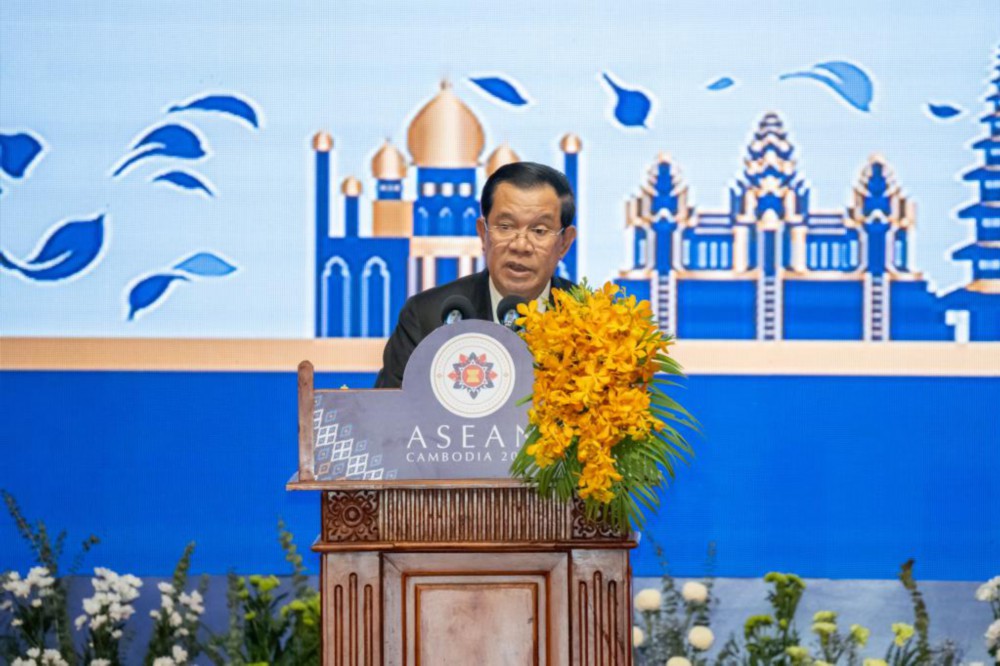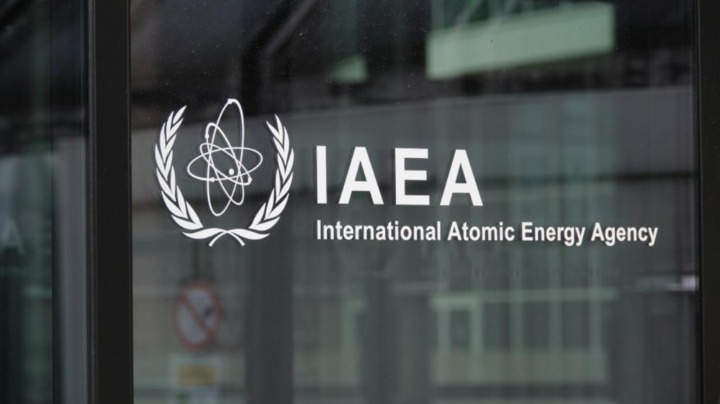Xinhua News Agency, Beijing, June 10th(International Observation) The United States, Britain and Australia insist on promoting nuclear submarine cooperation, causing concern in the international community
Xinhua News Agency reporter
The June Council of the International Atomic Energy Agency was held in Vienna, Austria a few days ago, and the issue of nuclear submarine cooperation between the United States, Britain and Australia has attracted the attention of all parties. The agency is considering the issue in the form of an intergovernmental discussion for the eighth time in a row, propelled by China.
Analysts pointed out that the United States, the United Kingdom, and Australia insisted on promoting nuclear submarine cooperation with a Cold War mentality, which aroused concerns from the international community. This move has set a dangerous precedent, exacerbated the risk of nuclear proliferation, impacted the international nuclear non-proliferation system, and seriously threatened regional peace and stability.
This is the logo of the International Atomic Energy Agency taken in Vienna, Austria on May 15.Photo by Xinhua News Agency reporter Liu Xinyu
Questioned by the international community
Li Song, China’s permanent representative to the International Atomic Energy Agency, made a special speech on the 8th, pointing out that the essence of nuclear submarine cooperation between the United States, Britain and Australia is that the United States and Britain, as nuclear-weapon states, carry out nuclear submarine cooperation with non-nuclear-weapon states and military allies Australia, involving the transfer of several tons of weapons-grade highly enriched uranium. Out of well-known geopolitical purposes, the United States, Britain and Australia brazenly launched the above-mentioned strategic military cooperation, crossing the threshold of the principles and practices of the Treaty on the Non-Proliferation of Nuclear Weapons unprecedentedly. This move seriously impacted the international nuclear non-proliferation system and posed a serious challenge to the institutional safeguards and supervision mechanism.
China urges the US, UK, and Australia to respond to the concerns of the international community with concrete actions, faithfully fulfill their nuclear non-proliferation obligations, and maintain candid and transparent communication with other parties on the basis of equality and mutual respect. Representatives from more than 20 countries, including Russia, Pakistan, and Egypt, spoke during the council, echoing China’s position and proposition.
The nuclear submarine cooperation plan between the United States, Britain and Australia has been questioned by the international community since it was announced, but the three countries insisted on promoting the plan. In March this year, the United States, Britain and Australia announced a nuclear submarine cooperation plan. According to the tripartite joint statement issued by the Australian government, starting from 2023, the number of US nuclear submarine visits to Australian ports will be increased; from 2026, the number of British nuclear submarine visits to Australian ports will be increased; starting from 2027 at the earliest, the US and Britain will take turns deploying nuclear weapons in Australia. powered submarine.
In terms of buying and selling nuclear submarines, the three parties expect that the United States will sell three Virginia-class attack nuclear submarines to Australia starting as early as the 1930s, and may sell two more as needed. Australia will also jointly develop and produce new nuclear submarines with the UK.
jeopardize the nuclear non-proliferation regime
In this cooperation, the United States, Britain and Australia, under the banner of “naval power reactors”, claimed to abide by their nuclear non-proliferation commitments, but their behavior was actually the first time in history that a nuclear-weapon state transferred a nuclear-weapon state to a non-nuclear-weapon state. .
Australia’s “Pearls and Stimulus” website published a joint open letter on May 24. The authors include more than 100 scholars, experts on international issues, and former diplomats from universities such as the Australian National University and the University of Melbourne. cooperation concerns. The open letter pointed out that in the future, the Australian Navy’s nuclear reactor will be fueled by weapons-grade uranium, and will not be subject to the conventional safeguards of the International Atomic Energy Agency on the grounds that it will protect sensitive US military information. precedent” and threatens to undermine international control mechanisms for non-proliferation.
“If the nuclear submarines of the tripartite cooperation are not intended to carry nuclear weapons, why would they need highly enriched uranium instead of low-grade uranium sufficient for nuclear fuel?” A commentary in the South China Morning Post recently questioned.
At the same time, the so-called nuclear security guarantees made by the three parties have not been recognized by the local Australian people. In early May, thousands of Australians rallied in Port Kembla to protest against the Australian federal government’s intention to build a nuclear submarine base in this eastern port in accordance with the US-UK-Australia cooperation agreement.
destabilize the region
Cambodian Prime Minister Hun Sen said on the 5th that the nuclear submarine cooperation alliance formed by the United States, Britain and Australia is becoming a matter of great concern to ASEAN. He said the military alliance was “the starting point of a very dangerous arms race” in the region and that if it continued, the world would be in greater danger.

The picture shows a profile photo of Cambodian Prime Minister Hun Sen attending the ASEAN summit, taken in Phnom Penh, the capital of Cambodia, on November 13, 2022.Photo by Xinhua News Agency reporter Zhu Wei
Analysts pointed out that while the United States and other Western countries claim to support the ASEAN-centered regional mechanism, they are actively promoting nuclear submarine cooperation in an attempt to create a small circle, undermine peace and stability, and cause dissatisfaction among regional countries.
After the United States, Britain and Australia announced specific cooperation plans in March this year, Southeast Asian countries such as Indonesia and Malaysia expressed concern about this, fearing that this would intensify the regional arms race. Former Australian Prime Minister Paul Keating said that the cooperation is the “worst decision” made by the Australian government in a century. This decision is not conducive to Australia’s own interests or regional security.
According to Joseph Matthews, a senior professor at Beltay International University in Cambodia, the US-UK-Australia nuclear submarine cooperation poses a major security threat to ASEAN and the entire Asian region. This alliance will trigger a conventional and nuclear arms race in the region, undermine peace and security, and undermine Economic development, undermining the centrality of ASEAN.
Veronica Saraswati, a researcher at the Indonesian Center for International Strategic Studies, an Indonesian think tank, pointed out that the provision of attack nuclear submarines to Australia shows that the United States still has a Cold War mentality and is trying to strengthen power building with its allies. The so-called establishment of a strategic balance to maintain stability in Southeast Asia is just an excuse for the United States, Britain and Australia to carry out military intervention and political manipulation in Southeast Asia, which will inevitably lead to regional chaos and destruction.
Kishore Mahbubani, a distinguished researcher at the Institute of Asian Studies at the National University of Singapore, also believes that the US-UK-Australia alliance is a step back to the past rather than a step into the future. (Participating reporters: Yu Tao, Yue Dongxing, Wu Changwei, Wang Aona)
(Yu Tao, Yue Dongxing, Wu Changwei, Wang Aona)
[Responsible editor: Dong Jing]
